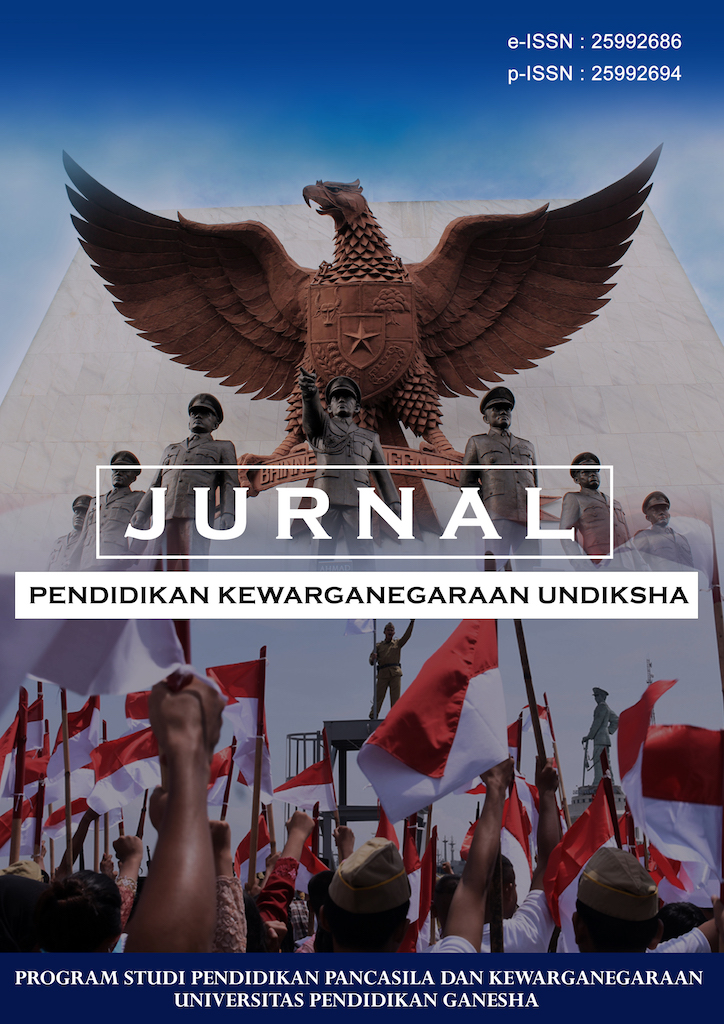JITU TRICKS FAST GRADUATION (CONCEPT-EMPIRIC ANALYSIS OF STUDENT STUDY PROBLEMS)
DOI:
https://doi.org/10.23887/jpku.v8i3.28608Abstrak
Graduation quickly and carrying diplomas are the main goals that must be achieved by all students, in addition to knowledge skills, attitudes and skills as intellectuals. However, it is not uncommon for students to experience failures in completing their studies due to various factors. Studies conducted by several universities in Indonesia show that, on average, 4% do not get a diploma because they fail to complete their studies, 4% move universities to avoid dorp-out, and 20% experience problems in completing the study. The problems of this study can be caused due to various problems, both internal problems that exist within the student himself, as well as external problems that occur due to other causes outside the student. Internal factors usually involve students' academic abilities (academic scores), self-motivation, student performance, socio-demographics (age, gender, ethnicity, religion) and student social behavior. Meanwhile, the external factors concern the socio-economic conditions and family education, peer influence, social conditions of the community, departments, lecturers (teachers), the administration system, the university's academic culture, etc. These two factors influence each other in determining the successful completion of student studies
Unduhan
Diterbitkan
Terbitan
Bagian
Lisensi
Authors who publish with the Jurnal Pendidikan Kewarganegaraan Undiksha agree to the following terms:
- Authors retain copyright and grant the journal the right of first publication with the work simultaneously licensed under a Creative Commons Attribution License (CC BY-SA 4.0) that allows others to share the work with an acknowledgment of the work's authorship and initial publication in this journal.
- Authors are able to enter into separate, additional contractual arrangements for the non-exclusive distribution of the journal's published version of the work (e.g., post it to an institutional repository or publish it in a book), with an acknowledgment of its initial publication in this journal.
- Authors are permitted and encouraged to post their work online (e.g., in institutional repositories or on their website) prior to and during the submission process, as it can lead to productive exchanges, as well as earlier and greater citation of published work. (See The Effect of Open Access)










